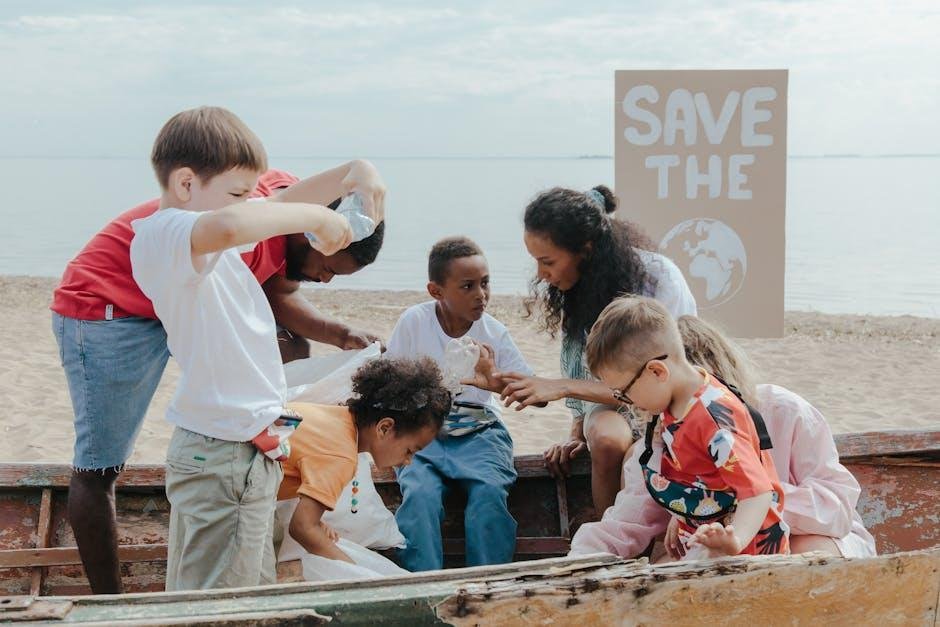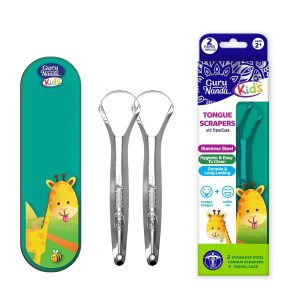Parenting today comes with its unique challenges, especially when it comes to helping our children develop a sense of responsibility and accountability. It’s not just about setting rules or handing down consequences; it’s about guiding kids gently, with empathy and understanding. In this article, we’ll explore thoughtful ways to nurture these essential qualities in children, creating a foundation that supports their growth into confident, caring, and self-aware individuals. Because when we teach responsibility with kindness, we help our kids thrive—not just now, but for a lifetime.
Table of Contents
- Understanding the Importance of Responsibility in Childhood Development
- Creating a Supportive Environment for Learning Accountability
- Practical Strategies for Encouraging Ownership of Actions
- Balancing Guidance and Freedom to Foster Independent Decision Making
- In Conclusion
Understanding the Importance of Responsibility in Childhood Development
From the earliest stages of growth, cultivating a sense of responsibility shapes more than just a child’s behavior—it lays the groundwork for emotional intelligence and social awareness. When children learn to take ownership of their actions, they begin to understand the natural consequences of their decisions, which fosters a deeper sense of empathy and self-respect. This foundational skill not only enhances their decision-making but also builds resilience as they navigate challenges with a proactive mindset.
Encouraging responsibility doesn’t mean imposing rigid rules; rather, it’s about offering gentle guidance that empowers children to make thoughtful choices. Parents and educators can support this development by creating environments where kids feel safe to try, fail, and try again. Key practices include:
- Assigning age-appropriate tasks that promote independence and accountability
- Modeling responsible behavior through consistent and clear communication
- Recognizing efforts and progress to bolster confidence and motivation
- Fostering open conversations about consequences and problem-solving strategies
Creating a Supportive Environment for Learning Accountability
Children thrive in environments where they feel safe to express themselves and make mistakes without fear of harsh judgment. Cultivating this kind of space begins with active listening and empathy, allowing kids to understand that their feelings and experiences matter. When parents and educators model calm, respectful responses to errors, children are more likely to embrace responsibility as a positive step toward growth rather than a source of shame. Encouraging open dialogue and validating their efforts establishes a foundation where accountability becomes a shared journey rather than a command.
To nurture this supportive atmosphere, consider incorporating gentle routines that promote reflection and ownership:
- Daily check-ins: Brief moments to discuss what went well and where improvement is needed, fostering self-awareness.
- Collaborative goal setting: Involving children in planning their responsibilities boosts motivation and a sense of control.
- Positive reinforcement: Recognizing progress with praise or small rewards nurtures confidence and perseverance.
- Consistent routines: Predictability helps children anticipate expectations and build structure into their learning habits.
These steps, woven gently into everyday interactions, transform accountability from a chore into a valuable life skill embraced with curiosity and kindness.
Practical Strategies for Encouraging Ownership of Actions
Fostering a sense of ownership in children begins with creating an environment where mistakes are viewed as valuable learning opportunities rather than failures. By encouraging open dialogue about what went wrong and what could be done differently next time, kids develop critical thinking skills and self-awareness. Instead of rushing to solve their problems, guide them with questions like, “What do you think would help fix this?” or “How can you make things right?”. This subtle shift empowers children to take initiative and understand the consequences of their actions in a safe, supportive space.
Implementing consistent yet flexible routines also plays a crucial role in nurturing accountability. Children thrive when they know what’s expected but are still given the room to make choices within those boundaries. Consider using gentle reminders and positive reinforcement to highlight when they step up and own their responsibilities. Some practical ideas to encourage this mindset include:
- Creating chore charts that let kids track their progress and feel pride in completed tasks.
- Setting natural consequences that relate directly to their choices, helping them see real-world impacts.
- Modeling ownership yourself by openly acknowledging your own mistakes and demonstrating problem-solving behaviors.
Balancing Guidance and Freedom to Foster Independent Decision Making
Striking the right balance between offering guidance and allowing freedom is essential in nurturing a child’s ability to make decisions independently. Rather than hovering or dictating every choice, parents can act as supportive anchors, providing a safe space where kids feel confident testing their judgment. This means setting clear boundaries while encouraging them to think through consequences, weigh options, and learn from mistakes. When children know that their caregivers trust their decisions — even when imperfect — it empowers them to take responsibility for their actions and grow in accountability.
Practical strategies to achieve this balance include:
- Asking open-ended questions that prompt reflection rather than simply offering solutions.
- Gradually increasing decision-making opportunities according to age and maturity.
- Allowing natural consequences to unfold unless they pose serious risks.
- Modeling thoughtful choices aloud to show the reasoning process.
- Celebrating efforts and learning moments rather than focusing solely on outcomes.
This intentional blend of guidance and autonomy encourages children to develop not just responsibility but also confidence in their ability to navigate complex situations with resilience and integrity.
In Conclusion
Teaching kids responsibility and accountability is a journey filled with patience, understanding, and love. By guiding them gently, we create a safe space where they can learn from their mistakes and grow into confident, compassionate individuals. Remember, it’s not about perfection but progress—celebrating each small step they take toward becoming responsible people. With empathy and consistent support, we empower our children to embrace their choices and develop the skills they need for a bright and balanced future. Keep nurturing their potential, one gentle lesson at a time.







